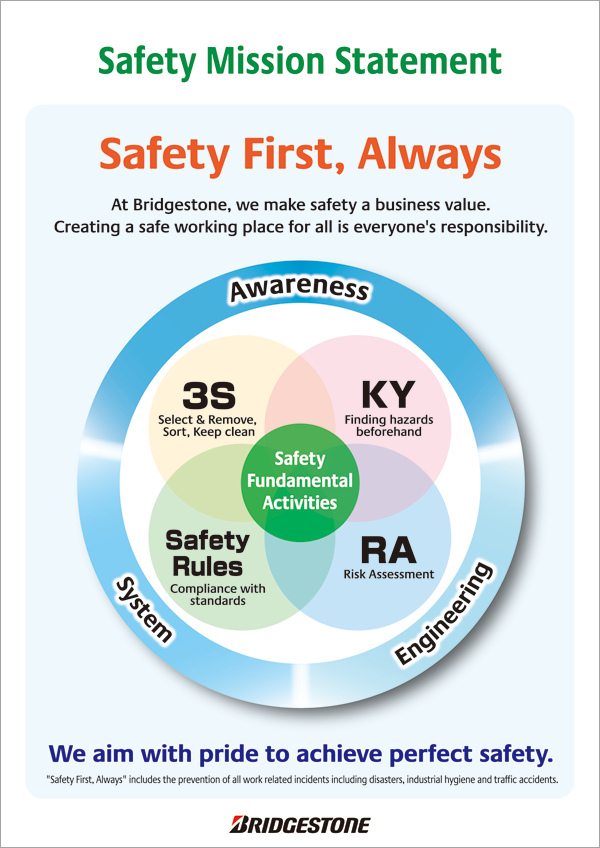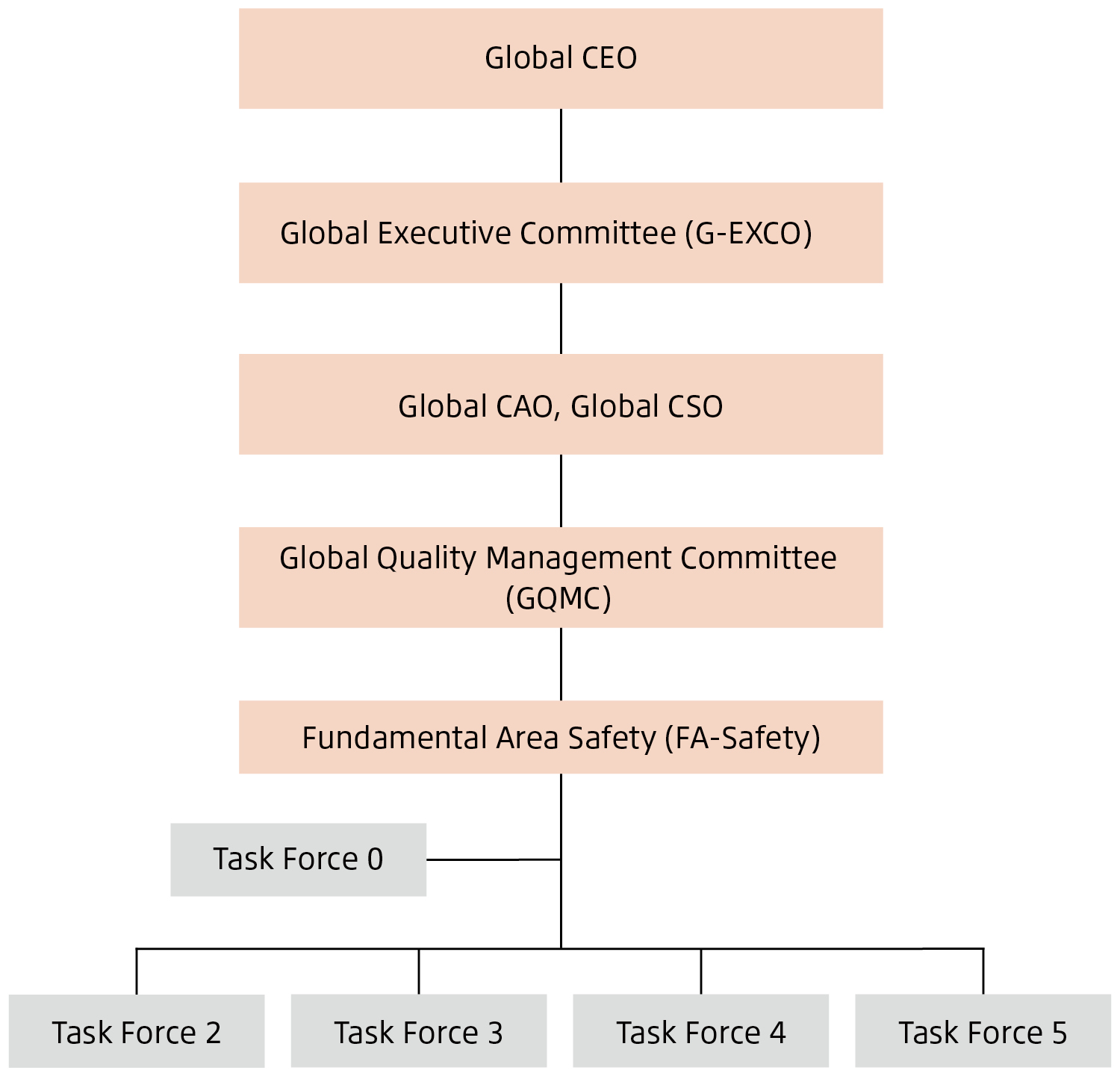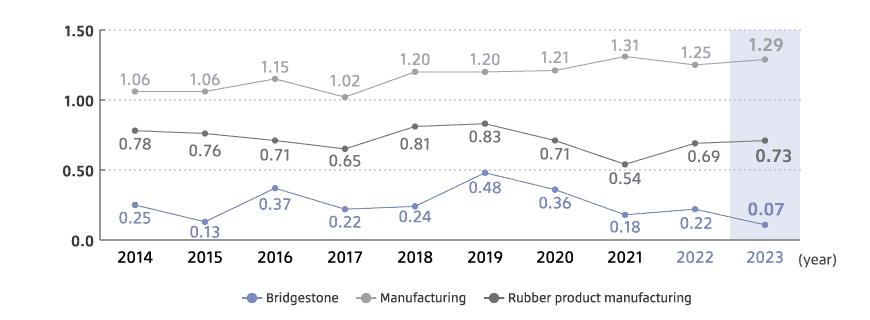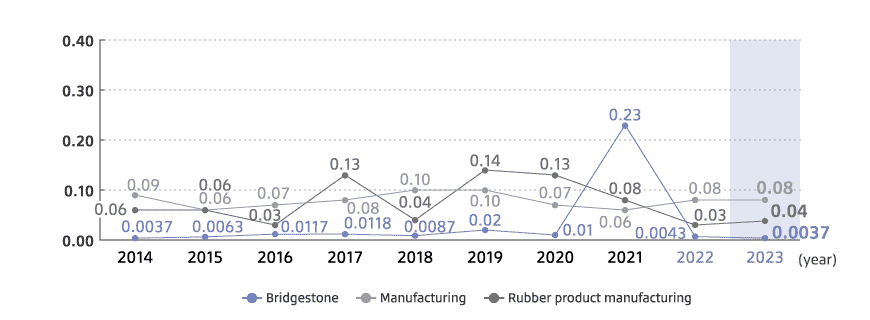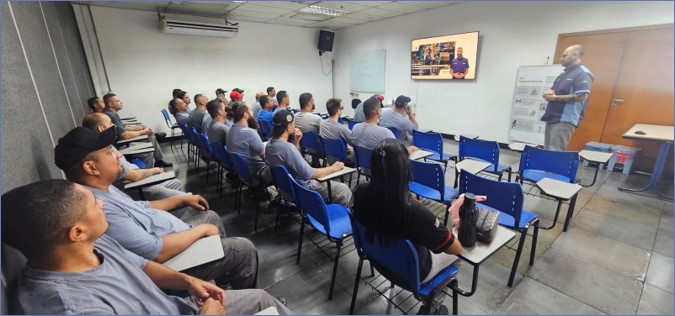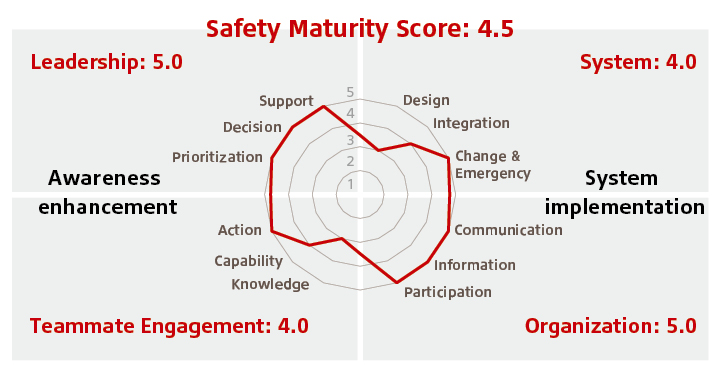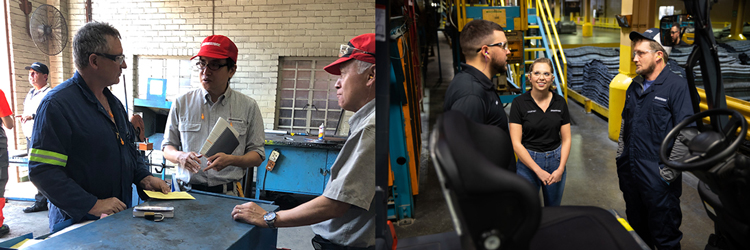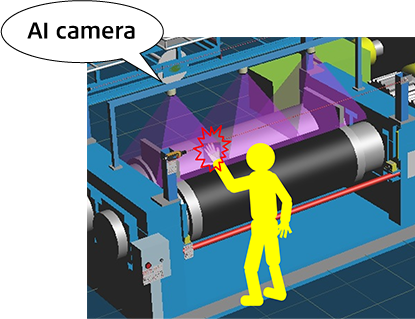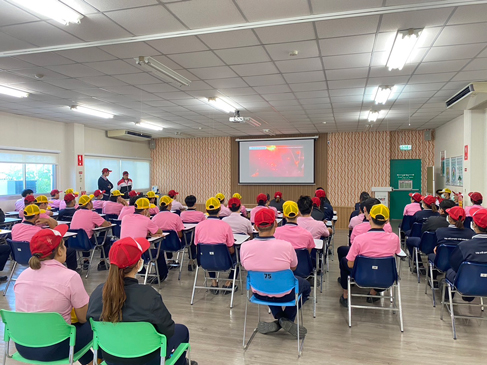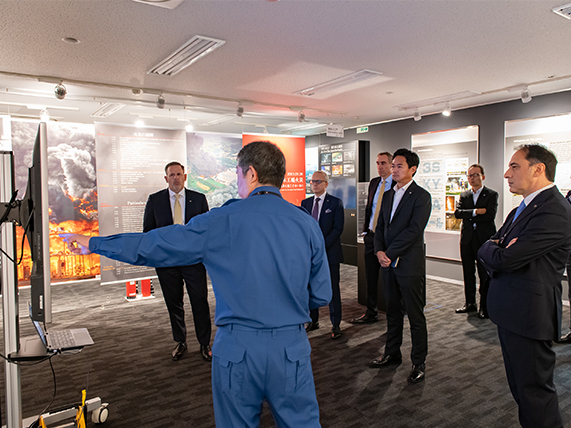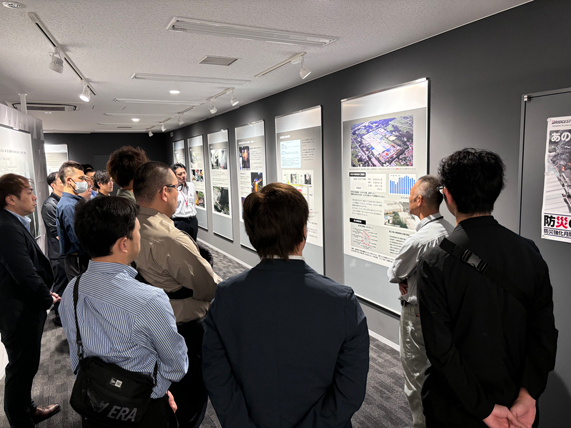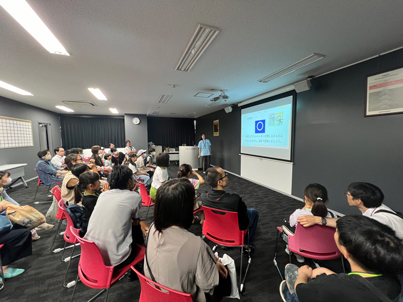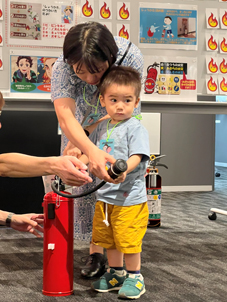Six core programs
▪Smoking cessation
This program seeks to reduce the smoking rate among employees in Japan in addition to preventing passive smoking. In April 2020, the Company banned smoking during work hours. The Company aims to lower the smoking rate to 12% or less by 2035, which is aligned with the target set in the Japan National Health Promotion campaign. The Company closed down all the indoor smoking areas across its own facilities in 2022, and encourages employees to receive medical assistance for smoking cessation and to participate in a cessation support program.
▪Cancer detection and treatment
Bridgestone Corporation conducts regular and special health check-ups, as well as health exams for employees working outside Japan as required under the Industrial Safety and Health Law. Industrial physicians and other medical personnel offer healthcare guidance to employees with health issues, usually at the Company’s Health Care Center.
Furthermore, in order to increase screening rates and achieve early detection and treatment, the Company provides at-work cancer screening, with an emphasis on female-specific cancer (breast and cervical cancer). As one of the priority issues, the Company aims to improve the female cancer screening rate (the percentage of female employees) and achieve a rate of at least 50% of female employees at each site taking the screening test. It also informs employees of subsidies for screening expenses, and raises awareness through videos and e-learning. In addition to using a bus to provide screening services, Bridgestone started to offer screening services through a nationwide network*1 of clinics made available through the Bridgestone Health Insurance Society in 2021.
*1 Made possible through an agreement between Bridgestone Health Insurance Society and a medical examination enforcement organization.
▪Lifestyle diseases
The Company uses information and communication technologies to encourage employees to use a health guidance program*1 designed to improve lifestyle-related health outcomes. It also encourages use of an online health improvement service available by smartphone or computer.
*1 A program for employees deemed at high risk for serious lifestyle diseases based on the results of their annual health check-up. Eligible employees receive free guidance and support from a medical expert for improving their lifestyle habits.
▪Mental health care
The Company has developed a guideline on mental health and established a mental health plan for each office that complies with Japan’s Ministry of Health, Labour and Welfare guidelines on self-care, consultation line care, on-site industrial medical staff care, and off-site care.
Based on a mental health plan, every site in Japan has a health promotion officer or nurse, public health nurse, or other health professional who can organize a mental health team. It provides counseling services under the guidance of an industrial physician and is supported by an external Employee Assistance Program (EAP) that also covers employees’ families.
▪Infectious disease
The Company is working to protect the mental and physical health of each employee and creating a safe and secure work environment. The Company educates employees on how to prevent the spread of seasonal influenza, norovirus, and other infectious diseases and how to prepare for them.
▪Integration of health-related efforts
Bridgestone Corporation's CRO, Risk Management and Health Management Division manages the advancement of the above programs in partnership with the Health Care Center and industrial health staff at each site and with the Bridgestone Health Insurance Society.
